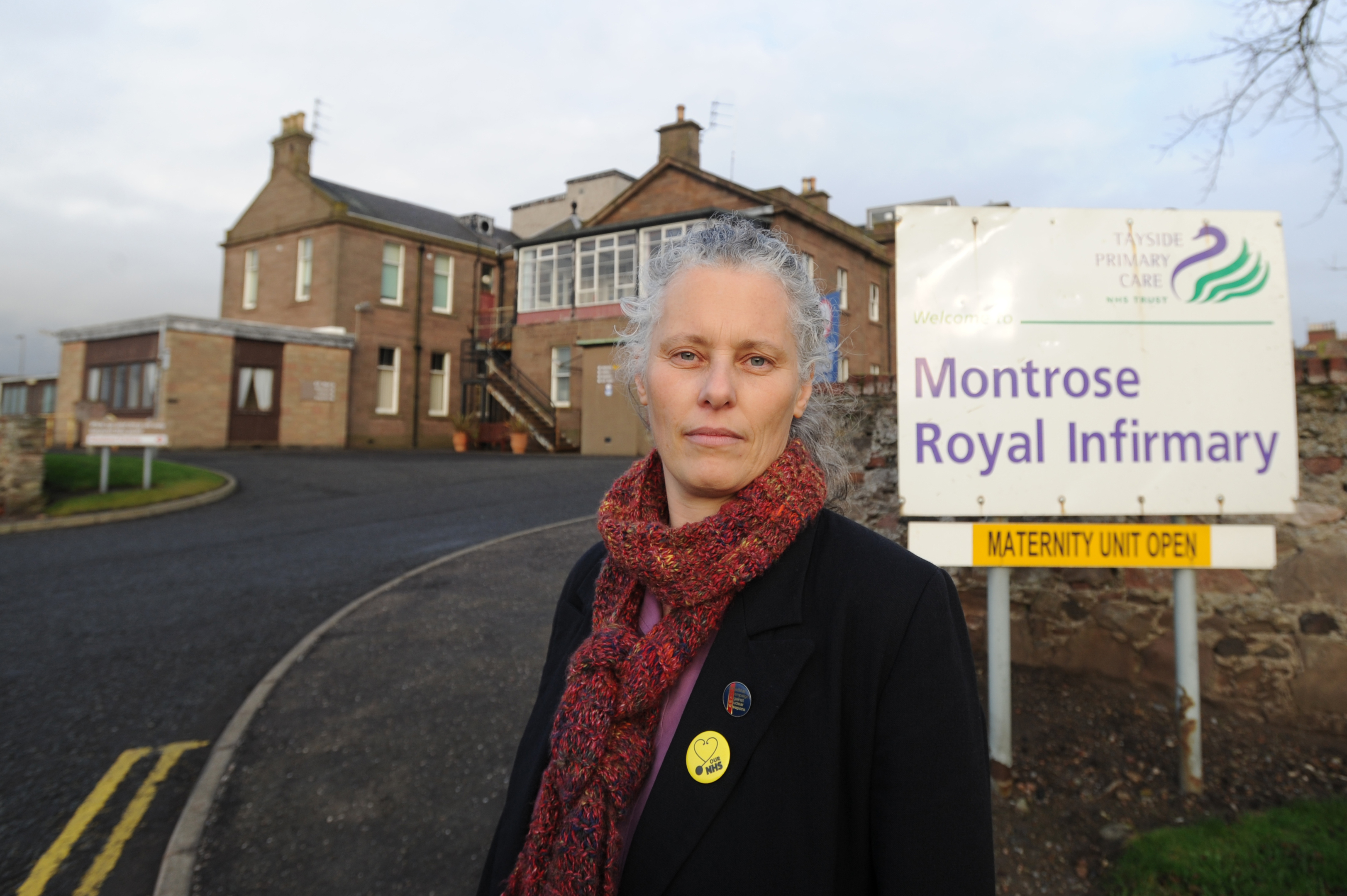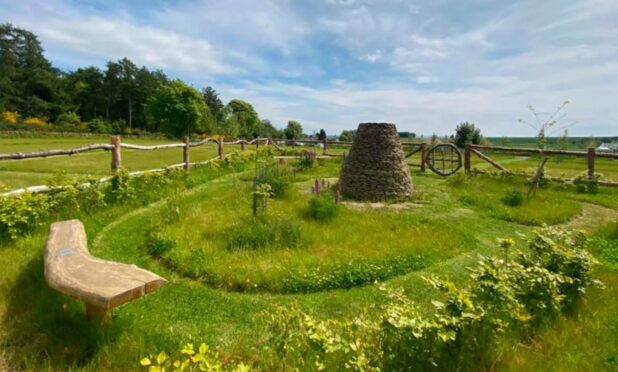An Angus GP has claimed that Montrose Royal Infirmary is at risk of closing within days.
Staff at the hospital were informed last week that, with immediate effect, there was a requirement for a minimum of two registered nurses to be working at all times.
The infirmary previously operated with at least one nurse and one healthcare assistant on shift.
Dr Kristien Hintjens, who is a GP partner at the Townhead Medical Practice, has spoken out after learning of the move, which has left staff worried for the hospital’s future.
She said: “At the moment, the ward has only got enough staff to cover it to this level (of providing two nurses at all times) until December 24.
“It could then be deemed within hours to be ‘non-operational’ and closed.
“Our patients would be moved out…to other places such as Stracathro and care homes outwith Angus. I am very alarmed at this development.”
In June the maternity unit, which was based at the Infirmary, was temporarily closed due to staff shortages. It has never reopened.
Angus Health and Social Care Partnership, which is responsible for delivering adult health services in Angus, responded to the claims by stating that the Infirmary “remains open” and that there are “sufficient staffing resources available throughout Angus to continue to provide safe and high quality patient care in Montrose”.
Dr Hintjens said the sudden change of shift requirements at the infirmary last week took place with no discussion with the nurses beforehand.
“I am afraid I am rather pessimistic about long term plans for Montrose Royal Infirmary,” she continued.
“We have been repeatedly reassured by Tayside Health Board management verbally that it is not under threat. This is minuted in our North East Angus Improvement Group meeting minutes.
“A GP bed led unit for local care, including palliative care, is needed.
“I see this most recent action as an attempt by NHS Tayside management to close our local community hospital and I do not think they will stop until they have succeeded.”
The community hospital has 13 beds and has been a fixture in the town since 1839.
Dr Huntjens said that even though there was now an emphasis on people being cared for in their own homes, there was still a need for a local hospital.
“We aim, as GPs in a multi-disciplinary team, to care for patients in their own homes for as long as possible if this is what they wish,” she continued.
“Unfortunately this is not always possible due to lack of family or social support/resources.
“Inevitably some of our most frail and elderly patients will need some time in a hospital bed even with excellent multi-disciplinary teamwork.
“Montrose Infirmary allows continuity of care by the GPs. It reduces risk of hospital acquired infection and delirium because of the small size and local nature of the unit.
“It also allows patients to be supported by their family, their friends and their peers.
“This optimises their mental well-being, especially at the end of life.
“It goes without saying that the carers and friends also benefit hugely as long distance travel to Dundee and Stracathro is reduced.”
“Sustainable ways of working”
Angus Health and Social Care Partnership has stopped short of guaranteeing the future of Montrose Royal Infirmary.
A statement from Gail Smith, head of community health and care services, said: “I would like to reassure the public that the GP ward at Montrose Infirmary remains open and that there are sufficient staffing resources available throughout Angus to continue to provide safe and high quality patient care in Montrose.
“We have been reviewing staffing levels at Montrose Infirmary to enhance nurse cover and to ensure that safe, efficient and effective rostering practices are being employed.
“We have already spoken with and reassured individual staff and are meeting with the wider nursing team in Montrose to discuss rosters and address any concerns they have.”
She said that the partnership, which is responsible for delivering adult health services in Angus, was working to develop new models of care that will “create sustainable ways of working into the future”.
“These are essential to recruiting the future workforce in Angus, and to improve the working lives and opportunities for all,” she continued.
“We are pleased that the enhanced community support model of care has been so successful in the south of Angus.
“This is now being rolled out to the north east of Angus with resources targeted to meet the needs of patients earlier when they become unwell and as close to their own homes as possible.”
A paper presented to the Angus Integrated Joint Board last week discussed enhanced community support and described that work is ongoing to consider the best shape of inpatient services across Angus which are fit for the future.
“This is occurring in collaboration with the locality groups and frontline staff with plans to be developed and presented in 2017,” Ms Smith added.










